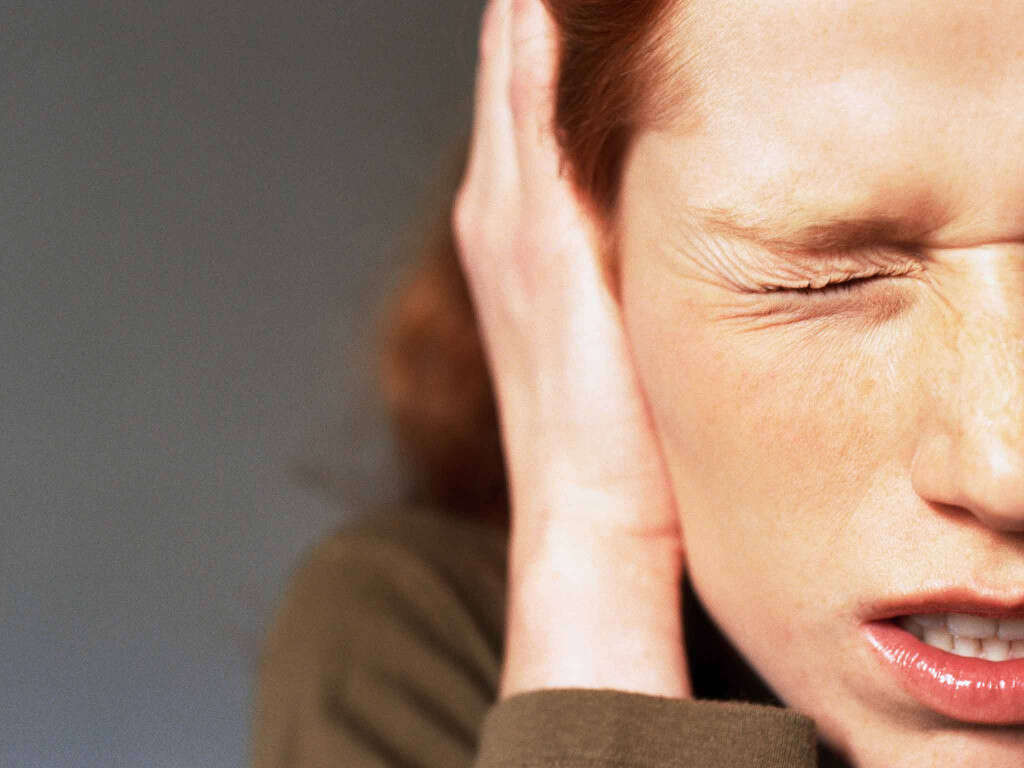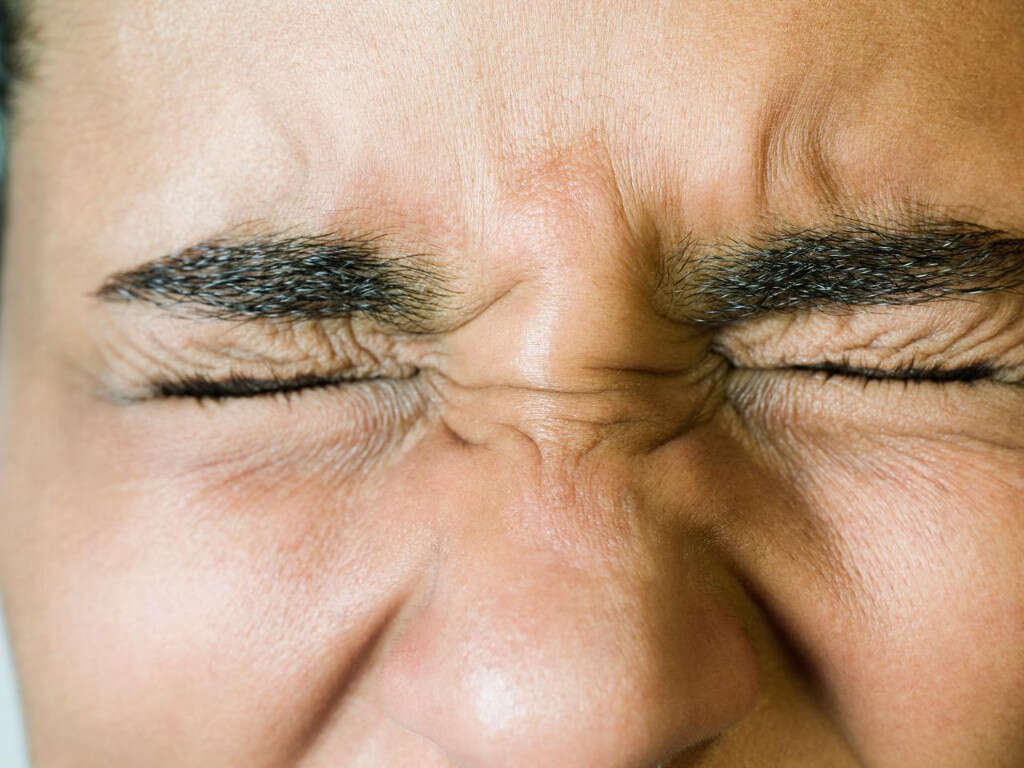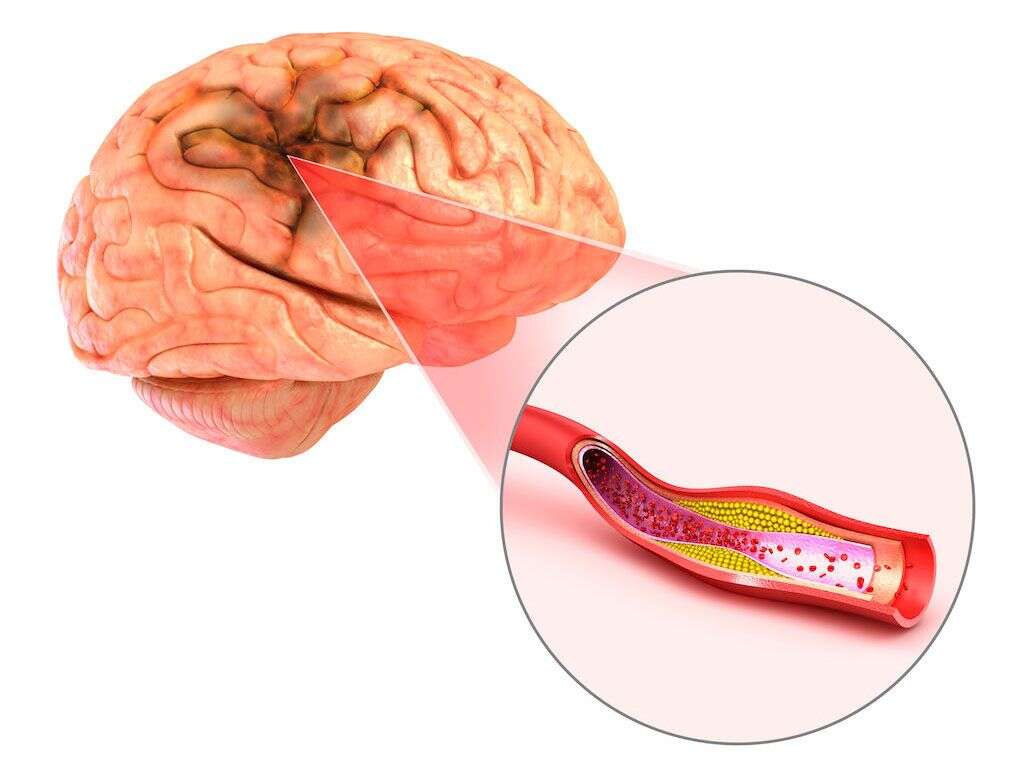10 Bell's Palsy Symptoms
You might not realize it, but our facial expression is maintained by muscles that are constantly keeping facial parts in place. Even when we are resting, these muscles are helping to maintain the shape of our mouth and the position of the eyebrows, among other things.
If these muscles were to relax or weaken, then it could have quite an effect on our appearance. Bell’s palsy is a condition that causes these muscles to do just that.
Patients will usually find that one-half of their face droops as the muscles are no longer supporting it. This also makes it difficult for them to complete even simple tasks such as smiling or chewing.

Symptom #1: Difficulty Eating
Eating and drinking are things that are so fundamental to us that it can be hard to imagine having difficulty with them. It is something that we are able to do from birth and we are born with the reflexes that allow us to drink our mother’s milk straight away. Patients with Bell’s palsy, however, will experience difficulty in eating.
Being able to chew and swallow requires the coordination of the muscles of the mouth and throat. If we lose this ability, then even eating dinner can become difficult. It is important to make sure you get enough nutrition, though, no matter how difficult it might be.

Symptom #2: Cannot Smile
Our facial expressions make up a language of their own. With various combinations from our facial muscles, we are able to tell other people a great deal without even saying a word. Even just a smile can often be enough to make somebody else’s day. Even that, though, is not always an easy thing to do.
Somebody with Bell’s palsy may not have sufficient control over their facial muscles to give a smile, no matter how much they might want to. They will also struggle with other facial expressions such as frowning. Other people might think the patient is devoid of emotion, although this is not necessarily true.

Symptom #3: Headache
Headaches can be a result of so many causes that they are not often useful in terms of helping to reach a diagnosis. Sometimes, they will come and go even when we are not really ill at all. They are often easy to overlook as just one of those things, although they could be telling you that something is wrong.
A headache is a fairly common symptom of Bell’s palsy. It is thought by some that it could be caused by an infection causing an inflammation in the cranial nerves. It is suggested that the same infection could be responsible for the Bell’s palsy in the first place.

Symptom #4: Sensitive to Sound
Our ears are not the most sensitive in the animal kingdom, but they are still more than able to tell us what we need to know about the world around us. Without them, life would be very difficult as we need to be able to hear what is around us. Sometimes, though, they can be too sensitive for comfort.
Many patients with Bell’s palsy will tell you that they have developed an insensitivity to sound. Loud noises can become very uncomfortable indeed, leaving the patient craving some peace and quiet. If you are experiencing these symptoms for any reason then you should arrange to speak with your doctor.

Symptom #5: Dry Mouth
Our mouths are wet inside, and it is important that they are. Our saliva plays an important part in breaking down our food and also protects the mouth against injury and disease. Without saliva, our mouths can feel very uncomfortable, while eating can also become more challenging to us.
Many people with Bell’s palsy will find that they get a dry mouth. It can potentially lead to oral hygiene problems in addition to other complications, so it is something that should be dealt with accordingly. If you do have a dry mouth for prolonged periods then you should arrange to speak with a medical professional to find out why.

Symptom #6: Drooling
While it is important to have a mouth that is moist, it is also important to keep this moistness inside. This is not usually a problem for us, but people with Bell’s palsy can find it very difficult to achieve. A lack of control over the muscles of the mouth can cause people with the condition to drool rather a lot.
Usually, any excess saliva will just be swallowed but this is not easy in many cases of Bell’s palsy. Instead, the saliva begins to accumulate in the mouth where it can then overflow. This is not helped by the patient’s inability to control their lips and other muscles of the mouth.

Symptom #7: Difficulty Blinking
Our eyes are quite delicate and could quite easily become damaged. Thankfully, though, they are well protected by the skull which shields them from impact trauma. They are also protected at the front by thin layers of skin which we know as the eyelids. They help protect against scratches and also help to keep the eyes moist by blinking.
If we don’t have control over the muscles that control the eyelids, though, then blinking can become very difficult. This can make it difficult for us to keep our eyes moist, causing our eyes to dry out. This can cause considerable discomfort and may even lead to damage if you are not careful.

Symptom #8: Decreased Sense of Taste
Being able to taste food allows us to tell what is good, and what is bad. It helps us to determine between food that is rancid or toxic and potentially dangerous to us and food which is safe to eat. It also helps to make our food delicious, encouraging us to take on essential nutrition.
People with Bell’s palsy will often find that their ability to taste food is inhibited. Food is unlikely to taste as good as it usually does, and they could even end up eating potentially harmful foods by mistake. It is still essential to eat enough, though, and it is necessary to be more careful than usual.

Symptom #9: Watering Eyes
Our tears are secreted into the eyes from the tear ducts to help keep the eyes moist. This helps to lubricate the eyes, allowing the eyelids to move smoothly over them. Our eyes are kept moist at all times, although sometimes they can become too moist.
Bell’s palsy will often cause the patient’s eyes to become wetter than usual. While this is not necessarily something to be overly concerned about, it can be uncomfortable and can be very visibly noticeable. It can also lead to minor difficulties in the morning as dried tears make it difficult for the patient to open their eyes.

Symptom #10: Twitching
Various things can cause us to twitch. Quite often it is caused by something irritating the skin, while it can also be down to various other conditions. Problems with the muscles can cause us to twitch involuntarily, while it can also be a sign that there is something wrong with the central nervous system.
Patients that have Bell’s palsy will often find that their face twitches involuntarily. This can be irritating to the patient and can also be very noticeable to other people. If you start twitching and you don’t know why, it is a good idea to speak with a medical professional.











